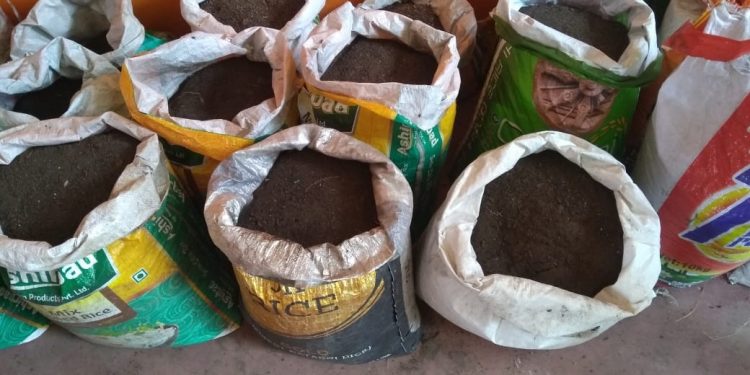Paradip: The heaps of garbage that had once been a source of headache for the Paradip municipality, and for all the municipalities for that matter, have become a source of earning.
In scripting such a success story, Paradip municipality has become the first such municipality in the state. Other municipalities are visiting Paradip in order to take a leaf out of its book.
Paradip municipality has an organic manure laboratory by combining Swachh Bharat Mission and Odisha Livelihood Mission. This innovative laboratory has now empowered 16 women both financially as well as mentally.
How it all started
Paradip municipality generates 52 tons of garbage a day. In order to have this humongous volume of garbage processed, the government had announced for a waste management plant here in 2008/09.
Had this been completed, it would have been the first waste management plant in the state.
Five years had passed by for selecting a suitable site for this project, to be set up at a cost of Rs 43.70 crore sanctioned by the World Bank.
Finally the project came up over a patch of land measuring 50 acres at Chandini of Rangiagarh, in the outskirts of Paradip town. After completion, the project suffered another problem. To get a party to run the project, a tender was floated, not for once but for more than one time, but none evinced interest. The fate of the project was thus shelved.
But it gave birth to four smaller size waste management plants at equal number of places. Every colony got a compost pit.
At these pits, food and wet items are being segregated from dry objects like polythene, plastic, tin, iron, wooden articles and old slippers.
There are ‘swachhsathi’ who are selling these dry objects away to scrap dealers. And the rest of the food and wet items are being converted into organic manure here.
“This year for the first time we had decided to sell our organic manure at Kalinga Baliyatra here and Cuttack Baliyatra. We did so by engaging self help groups. Our packets (1 kg) of organic manure were in high demand there. They were selling just like hot cakes. We had earlier decided to sell them at Rs 6 a packet. But we were taken aback to see all our manure packets being sold away at Rs 20,” said municipality executive officer Dillip Mohanty.
Now 16 women are being employed to prepare our organic manure. From the selling of the manure, the municipality earns something between Rs 8, 000 and Rs 9, 000 every month; he said adding, “When the organic manure gets dry and is packed, it looks just like tea dust.”
Now it has been decided that only women will work at all the four waste management projects whereby the Swachh Bharat Mission and Odisha Livelihood Mission would not only work simultaneously but these women would also become self-reliant.
The municipality has now placed two buckets of different colour each to 17, 411 slum dwellers and 5,350 quarter residents.
They have been asked to keep wet and dry wastages separately to the specific marked buckets. Every morning municipality staff are collecting these wastages and bringing to the nearer one of the four waste management project sites.
Last month, the municipality earned over Rs 1 lakh from selling dry articles. 37 ‘swachhsathi’ and supervisors and 16 women are thus earning their livelihood from wastages.
PNN






































